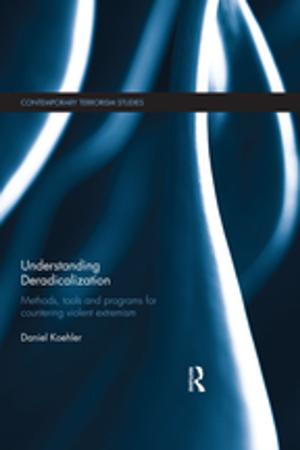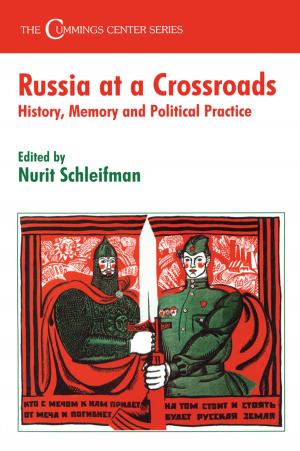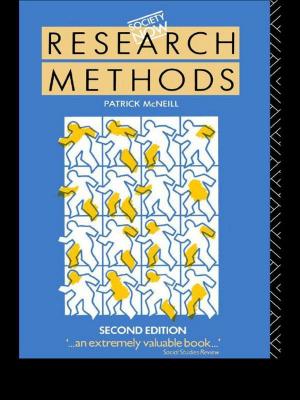Posthuman Dialogues in International Relations
Nonfiction, Social & Cultural Studies, Political Science, International, International Relations| Author: | ISBN: | 9781317041917 | |
| Publisher: | Taylor and Francis | Publication: | August 10, 2017 |
| Imprint: | Routledge | Language: | English |
| Author: | |
| ISBN: | 9781317041917 |
| Publisher: | Taylor and Francis |
| Publication: | August 10, 2017 |
| Imprint: | Routledge |
| Language: | English |
Posthumanism represents a significant new research direction both for International Relations and the social sciences. It emerges from questions about inter-species relations which challenge dominant perceptions of what it means to be human. Rather than seeing the human species as ‘in nature’ posthumanist thinking considers the species as ‘of nature’. The work of posthumanist thinkers has sought to dispute accepted notions of what it means to be human, raising profound questions about our relations with the rest of nature. The volume commences with an overview of the influence thinkers have had on the development of posthumanist thinking.
Key ideas in International Relations are interrogated and reconceptualised and specific case studies are presented with a focus on inter-species relations. The work allows for a consideration of the limits of the posthumanist move and provides space for critics to argue that such an approach opens the discipline up to a biological determinism, and that a focus on inter-human relations should mark the boundaries of the discipline. The essays collected in this volume provide an overview of contributions from posthumanist thinkers with the particular intention of providing a succinct introduction to the area and should appeal to scholars and students in Politics, IR and philosophy.
Posthumanism represents a significant new research direction both for International Relations and the social sciences. It emerges from questions about inter-species relations which challenge dominant perceptions of what it means to be human. Rather than seeing the human species as ‘in nature’ posthumanist thinking considers the species as ‘of nature’. The work of posthumanist thinkers has sought to dispute accepted notions of what it means to be human, raising profound questions about our relations with the rest of nature. The volume commences with an overview of the influence thinkers have had on the development of posthumanist thinking.
Key ideas in International Relations are interrogated and reconceptualised and specific case studies are presented with a focus on inter-species relations. The work allows for a consideration of the limits of the posthumanist move and provides space for critics to argue that such an approach opens the discipline up to a biological determinism, and that a focus on inter-human relations should mark the boundaries of the discipline. The essays collected in this volume provide an overview of contributions from posthumanist thinkers with the particular intention of providing a succinct introduction to the area and should appeal to scholars and students in Politics, IR and philosophy.















